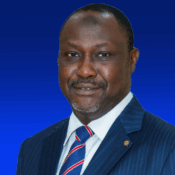
In order to obtain a G7 loan for Ukraine, EU nations aim to prolong the ban on Russian assets
In order to safeguard a Group of Seven plan to extend a significant loan to Ukraine, member states of the European Union will consider alternatives on Wednesday for extending the duration of sanctions renewal on the assets of the Russian central bank, according to a draft text from the EU.
Leaders of the EU and the Group of Seven major democracies decided in June to support a $50 billion loan for Ukraine to help it defend itself against Moscow’s invasion by using the interest on Russian assets that had been frozen.
The majority of the assets, which total over $300 billion, are owned by EU financial institutions, primarily in Belgium. Regulations from the EU say that the sanctions against Russia can only be renewed every six months with the unanimous consent of EU member states.
According to EU diplomats, a few big democracies from the Group of Seven, including the US, are worried that the 27-nation EU may not reach unanimity at some point, endangering the entire loan.
Compared to other EU leaders, Hungarian Prime Minister Viktor Orban has stronger links to Russia and has frequently stalled efforts to impose further sanctions and provide financial help to Ukraine.
The two ways to allay these worries will be discussed by EU ambassadors on Wednesday. An “open-ended” continuation of the sanctions system that rendered Russia’s central bank assets immobile is one option.
“This shall be reviewed by the Council at regular intervals (e.g. twelve months), on the basis of clear predefined criteria (i.e. the end of the war of aggression and assurances of non-repetition, the payment of compensation by Russia, etc.),” stated the paper.
The renewal time could be extended to a maximum of three years as an alternative. In any scenario, EU members would still need to vote unanimously, and any extensions would only cover the assets held by the Russian central bank.
Both of the options seek to “enhance legal certainty and predictability for G7 partners for the extraordinary revenue streams, which shall be made available to Ukraine to service and repay additional bilateral loans by the EU and G7 partners.”
All Categories
Recent Posts
Tags
+13162306000
zoneyetu@yahoo.com



